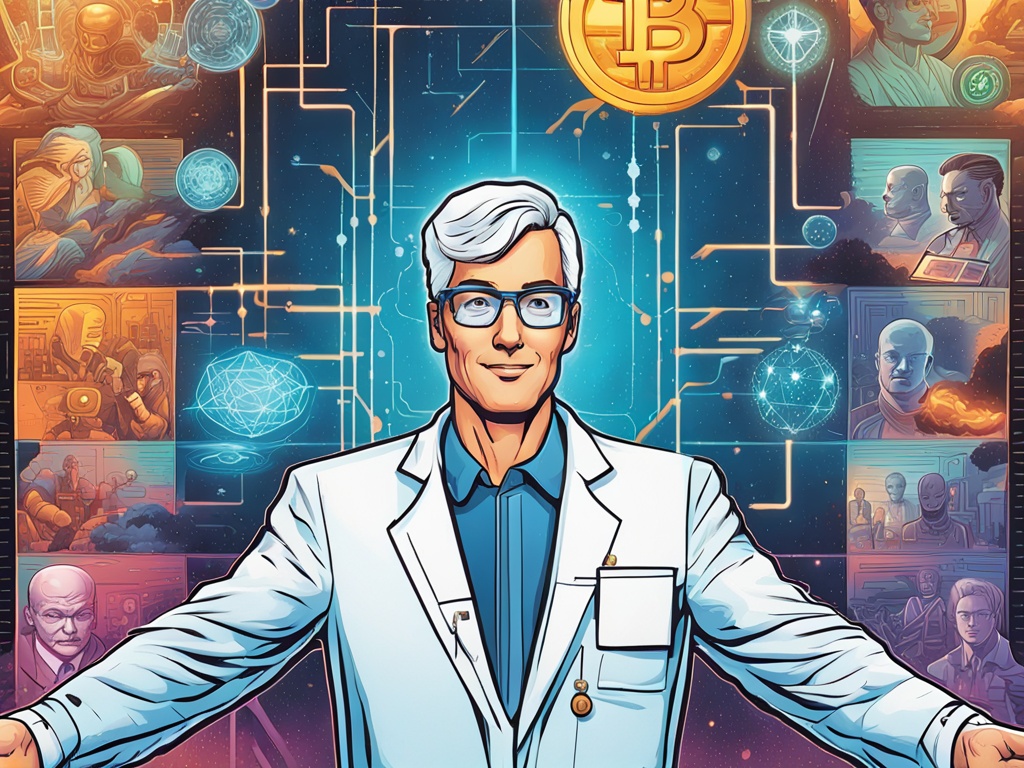AI’s Impact on Healthcare Transformation 🤖
At the forefront of healthcare discussions, NVIDIA’s leader, Jensen Huang, participated alongside prominent healthcare figures during the J.P. Morgan Healthcare Conference. They focused on how artificial intelligence (AI) can significantly transform sectors such as biomedical research and clinical trials.
Overcoming Healthcare Obstacles with AI 🚑
Held in San Francisco, the conference brought attention to the growing challenge of healthcare professional shortages, which the World Health Organization predicts could reach 10 million unfilled positions by the end of this decade. In light of this, integrating AI solutions, including foundational models and agentic AI, is seen as essential. These technologies promise to streamline drug development processes and improve clinical workflows, ultimately enhancing patient care and operational efficiency.
Distinguished attendees included Patrick Collison from Stripe and the Arc Institute, Christina Zorn of Mayo Clinic, Jacob Thaysen from Illumina, and Ari Bousbib from IQVIA. Together, they forged partnerships with NVIDIA to advance efforts in drug discovery, genomic advancements, and AI-empowered healthcare initiatives.
Innovations in AI Technology 💡
During the conference, Huang shared insights on the swift advancements in AI, progressing from effective large language models to the emergence of physical AI systems. He particularly highlighted the promise of agentic AI models that are capable of reasoning and addressing complex challenges. A focal point of the discussion was NVIDIA’s introduction of the Cosmos platform, a revolutionary AI framework aimed at predicting actions in robotics.
Perspectives from Industry Leaders on AI Advancements 💼
Patrick Collison elaborated on the Arc Institute’s initiatives aimed at ensuring sustainable funding for long-term scientific investigations. This collaborative effort has already birthed Evo, a groundbreaking model tapping into the languages inherent to DNA, RNA, and proteins, with discussions of further collaborations with NVIDIA in motion.
Christina Zorn from Mayo Clinic shed light on innovative approaches integrating AI with one of the globe’s largest pathology databases, with an aim to transform cancer care. Furthermore, the clinic is investigating the implementation of robotics to address impending workforce shortages.
Jacob Thaysen and Ari Bousbib addressed the challenges of merging multimodal AI frameworks to enhance biomedical analysis and facilitate clinical operations. Specifically, IQVIA is tapping into NVIDIA’s technology to develop AI-powered workflows aimed at boosting the effectiveness of clinical trials and optimally planning healthcare services.
NVIDIA’s Dedication to Healthcare Innovation 🏥
Kimberly Powell, NVIDIA’s vice president of healthcare, emphasized the company’s unwavering commitment to healthcare advancements during her address. She introduced new developer resources, including the NVIDIA NIM microservice for molecular creation and the BioNeMo Blueprint tailored for protein engineering, broadening the company’s arsenal of AI resources tailored for healthcare.
For further exploration of NVIDIA’s healthcare initiatives, refer to the NVIDIA blog.
Hot Take: The Future of AI in Healthcare ✨
This year could mark a pivotal moment for artificial intelligence’s integration within the healthcare landscape. As industry leaders collaborate and harness the potential of AI technologies, we may witness significant breakthroughs in medical research, patient care, and operational efficiencies. The dialogue initiated at the conference signals a promising path forward, highlighting the need for continued innovation and cooperation among stakeholders in the healthcare sector. Embracing AI could not only mitigate workforce challenges but also pave the way for a healthier future.





 By
By
 By
By
 By
By
 By
By

 By
By